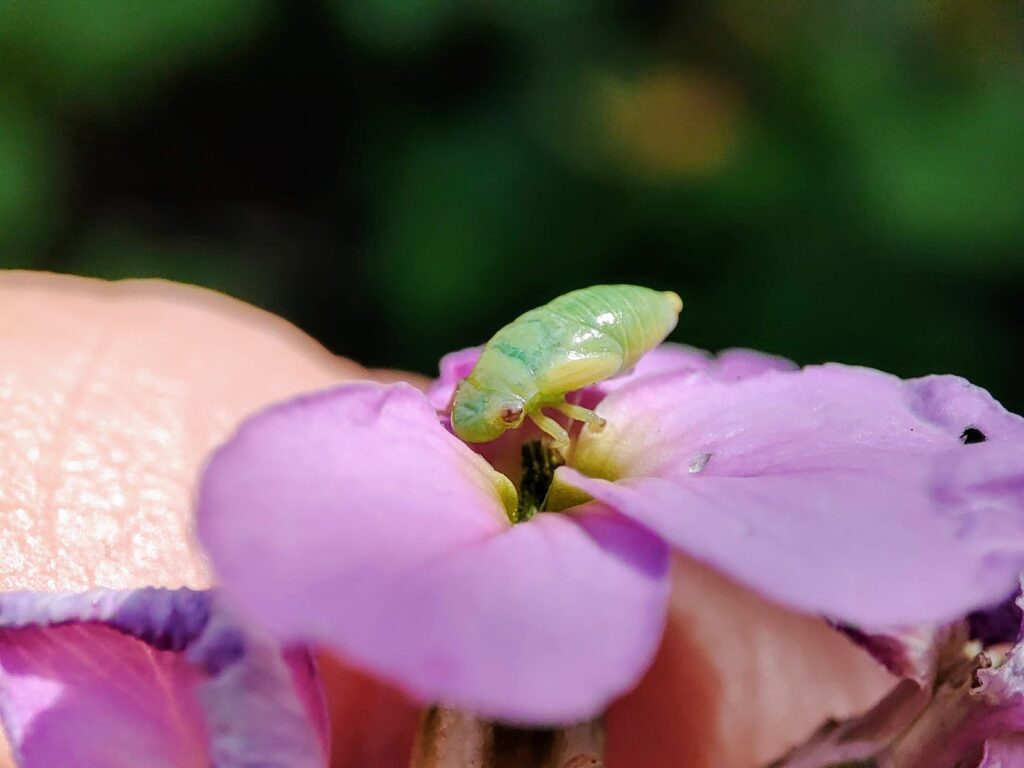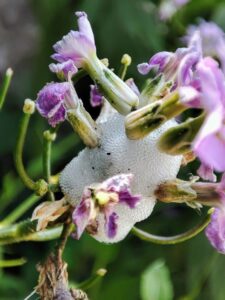
I’m often delighted to see Eire’s Wildlife featured within the media — however a current article printed within the Gardening part of the RSVP Journal web site has me lower than thrilled.

The article in query sensationalises the connection between frog-hoppers/spittle bugs (their American title) and a bacterial plant illness known as Xylella fastidiosa. Sure, in areas the place Xylella happens, sap-sucking bugs like frog-hoppers usually grow to be vectors by means of which the pathogen spreads to different close by crops, nevertheless, Xylella is NOT CAUSED by the insect, and the frothy spittle so frequent on crops all through the Irish countryside in early summer time IS NOT an indication of illness. The truth is, it’s a completely regular a part of a wholesome Irish ecosystem.

We have now by no means had a confirmed instances of Xyllela right here in Eire, and so they have recorded none to this point within the UK both. For now at the least, it merely doesn’t happen right here.
The RSVP Journal article latches on to a legit name for info from scientist within the UK, and twists it into one thing altogether extra sinister. All of the scientists are asking for is for the general public to submit data of cuckoo spit and grownup frog-hoppers, serving to them to map their distribution. That knowledge will assist them make extra knowledgeable choices on how greatest to reply IF Xylella ever does arrive.
Simply to be 100% clear right here: these scientists are not suggesting cuckoo spit is in any method dangerous, they’re not calling for anybody to regulate frog hoppers or eradicate cuckoo spit of their gardens or wherever else. They’re simply accumulating knowledge to higher perceive their distribution.
To summarise:
- Xylella fastidiosa has by no means been recorded in Eire
- Frog Hoppers / Spittle Bugs are widespread, frequent native Irish bugs
- They DO NOT trigger illness in crops (though the place Xylella is current they will unfold it)
- Cuckoo Spit is NOT A SIGN OF DISEASE: it’s a regular a part of a wholesome, functioning Irish ecosystem
- There isn’t any viable purpose to take away cuckoo spit from crops in your backyard
Discover out extra in regards to the fascinating Frequent Frog Hopper right here. Should you’re curious about discovering out extra in regards to the scenario surrounding Xylella, right here’s a complete overview of Xylella and frog-hoppers within the UK that’s properly offered and fact-based.
The risks of poor reporting in a Biodiversity Disaster
No one is denying that Xylella is a critical illness, and has triggered devastation in components of mainland Europe (notably to Italian olive groves). Measures to regulate and prohibit the unfold of the micro organism that causes the illness are fully warranted. What’s unwarranted is equivocal reporting that misrepresents the details, casting a innocent constituent of our native biodiversity because the villain in a contrived and appallingly inaccurate narrative.
Wildlife is not any stranger to being forged because the scapegoat for human-induced issues within the pure world, however amidst a biodiversity disaster, articles just like the RSVP one, that sensationalise danger, foster suspicion and demonise a local species, will be extremely damaging. We’ve been receiving emails and messages since this text went out from folks asking how they will eradicate cuckoo spit from their backyard crops.
The reply, in fact, is you don’t have to do something. Because the BBC Gardener’s World web site advises “It’s greatest to go away the froghoppers to get on with being froghoppers.”